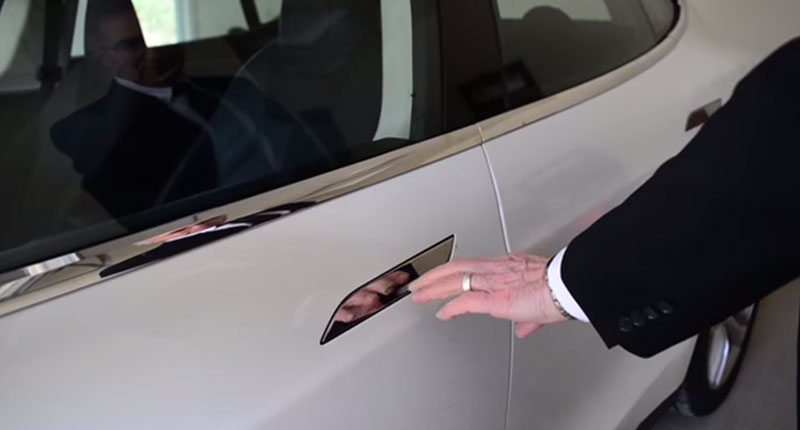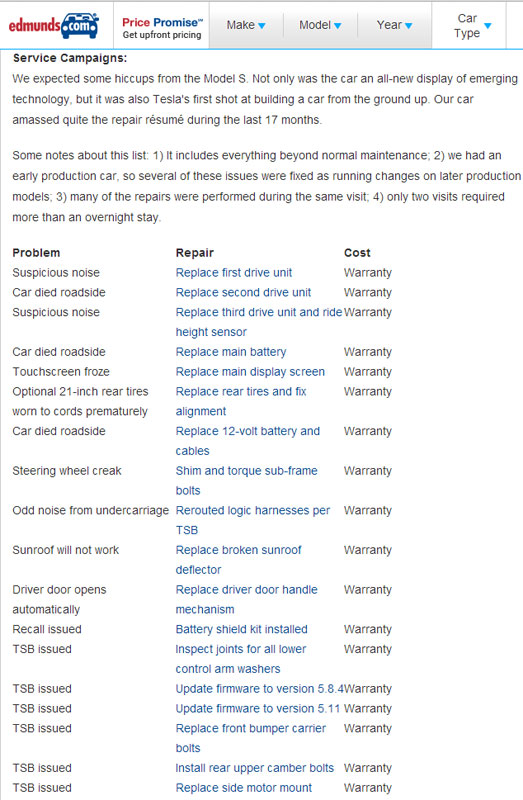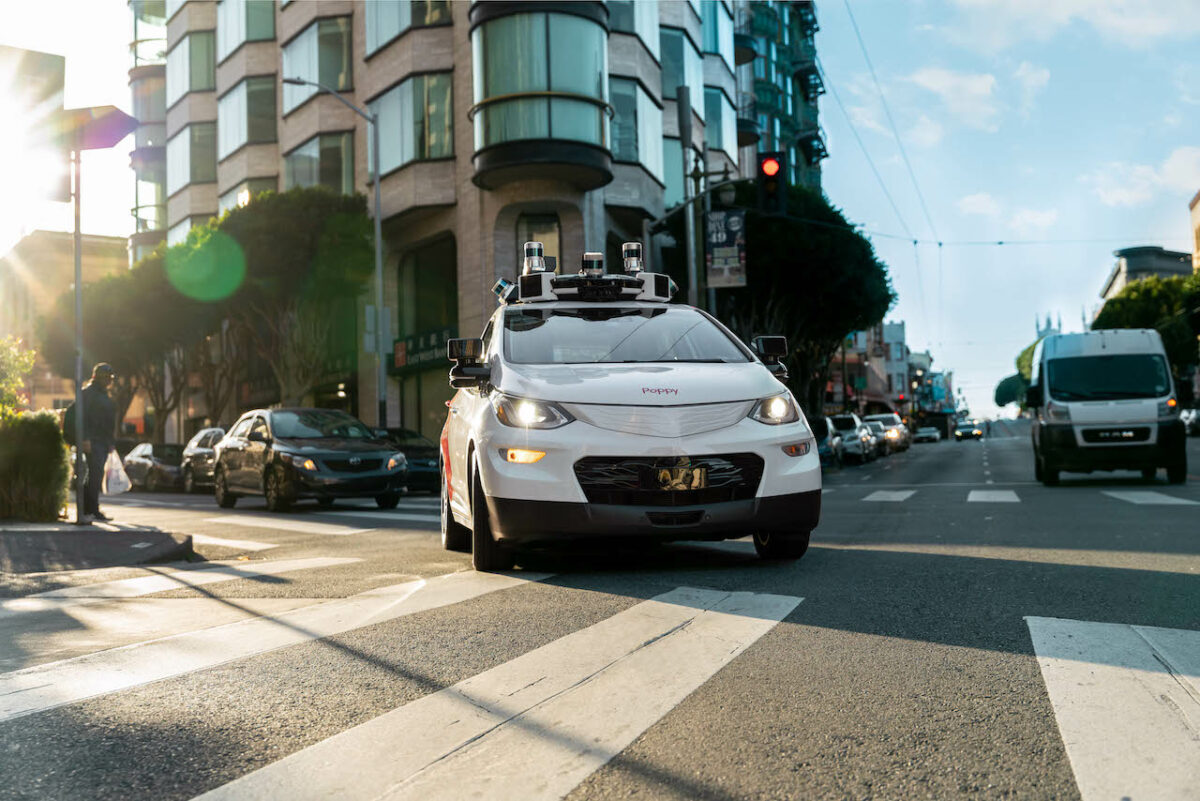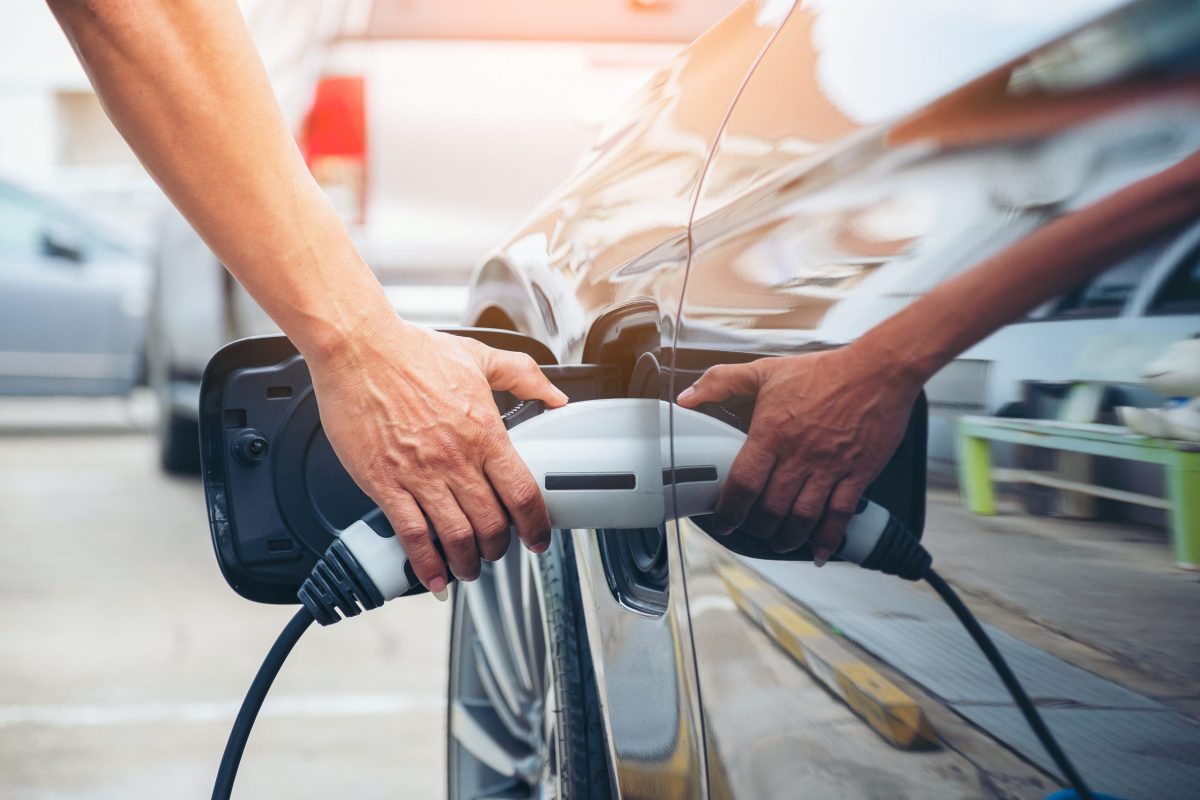Tesla is stepping up its Model S warranty offer following reliability concerns raised by Edmunds.com and Consumer Reports (CR). In a step clearly aimed at demonstrating how its new technology will last in the long run, Tesla is now extending the drive unit warranty on its Model S to eight years. There is some fine print, however. For those buyers opting for the 85kWh variant, there is no limit on the mileage, which Tesla is keen to make a big noise about. For the less expensive 60kWh variant, though, the drive unit warranty limit stands at eight years or 125,000 miles (whichever comes first).
With the 85kWh variant, the drive unit warranty now mirrors what has already been on offer for the Model S battery pack. Notably, the revised warranty applies retroactively to all Model S models produced so far.

Chief Executive Elon Musk has long pushed the premise that electric vehicles (EVs) entail less maintenance than traditional vehicles. He observed in a blog posting: “In hindsight, this should have been our policy from the beginning of the Model S programme. If we truly believe that electric motors are fundamentally more reliable than gasoline engines, with far fewer moving parts and no oily residue or combustion by-products to gum up the works, then our warranty policy should reflect that.”
This proof of reliability, however, will come at a cost. Musk has warned that the move will “have a moderately negative effect on Tesla earnings in the short term, as our warranty reserves will necessarily have to increase above current levels. This is amplified by the fact that we are doing so retroactively, not just for new customers. However, by doing the right thing for Tesla vehicle owners at this early stage of our company, I am confident that it will work out well in the long term.”
Quality concerns
While Tesla is struggling to provide enough Model S units to match demand, quality concerns have been raised several times. A Model S owner in Wisconsin has reportedly had so many problems with his unit that he wants Tesla to buy it back. During the first five months of ownership the car was in the shop for repairs a total of 66 days. This individual took his complaint to the self-proclaimed ‘Lemon Law King’, Vince Megna, a lawyer well known for representing plaintiffs in lemon law cases against vehicle manufacturers.
It turns out that this same client brought a similar lemon lawsuit against Volvo through Megna a year previously, and Musk has cast doubt on the validity of much of his complaints, “many of which have elusive origins.”
However, Musk can’t dismiss the quality issues raised by Edmunds.com as easily. During the 17 months that Edmunds owned its Models S, the vehicle suffered numerous technical problems. “We expected some hiccups from the Model S. Not only was the car an all-new display of emerging technology, but it was also Tesla’s first shot at building a car from the ground up. Our car amassed quite the repair résumé during the last 17 months,” it noted. In the overall summary of its Model S experience, Edmunds includes among the cons the “extensive list of repairs necessary.” Its conclusion is that “the Model S is a fast, comfortable and technologically brilliant luxury sedan, but numerous problems with its touchscreen, tyres and drivetrain make it hard to recommend.”

Then there is Consumer Reports, which previously described the Model S as the best performing car it ever tested. However, after 15,743 miles, it’s starting to change its tune. During this time, there have been problems with the automatic-retracting door handles, a clip on the third-row seat broke, the front boot lid failed to work, the charger adapter broke and the centre control screen went blank and needed a hard reset. This last fault is a big one, as it wipes out access to most of the car’s functions.
So far, owners have come out strongly in support of their Model S. In the latest CR owner satisfaction survey, 99% of Model S owners said they would buy the car again. However, as CR Senior Automotive Engineer Gabe Shenhar observed: “We’ve seen in the past that owners can love some unreliable cars.” He went on to note that in last year’s CR reliability survey, the Model S received just an ‘average’ rating. “Our test car is only a sample size of one. Check back this fall when we’ll have updated reliability information from hundreds of Model S owners. Then we’ll know if our top rated car remains recommended, or not,” he added.
Earnings impact
While the change in warranty policy will be welcomed by owners and possibly allay concerns of potential buyers, don’t forget Musk’s warning on a ‘modest’ earnings impact. As of Q1 2014 figures, Tesla earmarks around US$2,700/car for warranty repairs. The new warranty will see this figure increase. To complicate matters, the new warranty is retroactive so Tesla will also have to calculate the amount it would have earmarked had it offered 8-year coverage on drive units from the start.
While it is too early yet to determine the exact impact this will have, analyst Chris Umiastowski (also a Tesla shareholder and Model S driver) estimates that it will result in a one-time charge of about US$16m to account for the “catch-up of the warranty reserves” on about 40,000 Model S vehicles sold so far. There will also be an ongoing effect on gross margin. “Personally, given my long term focus, I believe this warranty change was the right thing to do for everyone involved,” he stated in a blog posting. “As a Tesla Model S driver I feel the company has put its money where its mouth is. As a shareholder I feel that it’s important for a young company like Tesla to offer as much comfort to new customers as is reasonably possible. Happy, comfortable customers generate more referral business. We all know Tesla’s biggest sales channel is word of mouth.”
Megan Lampinen



